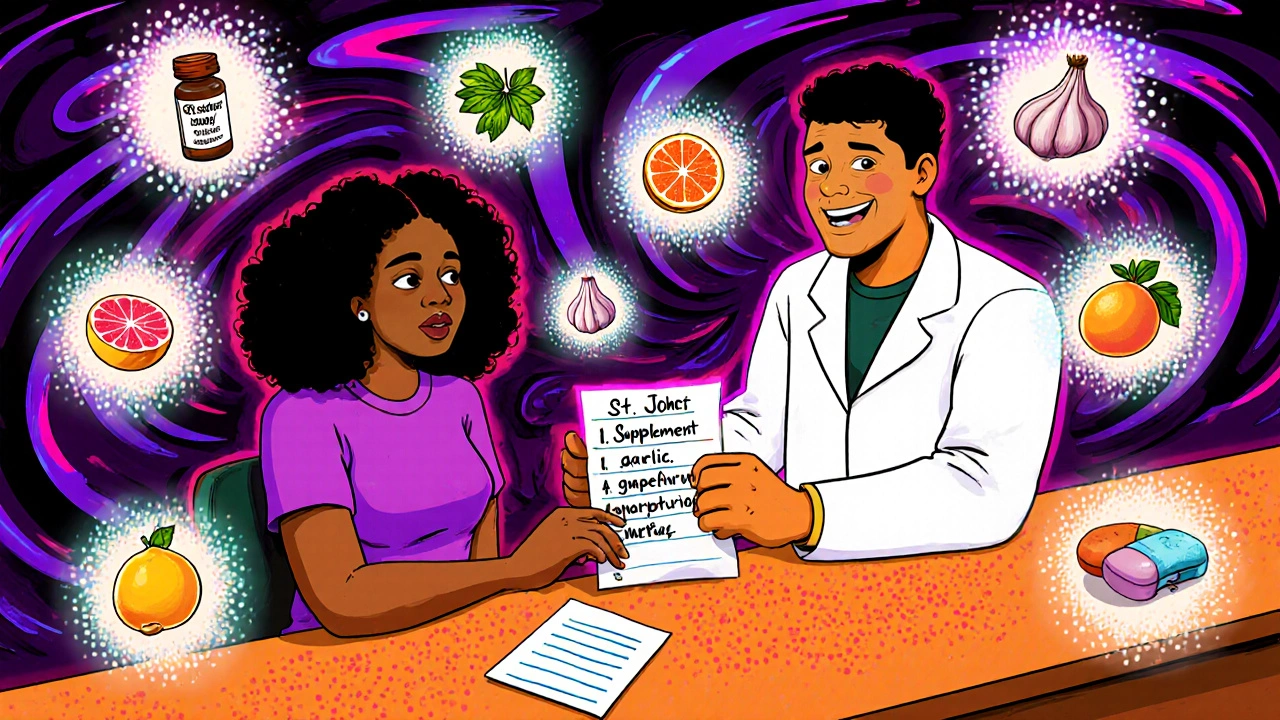Supplements and Drugs: What Works, What Doesn’t, and How to Stay Safe
When you take supplements and drugs, combining over-the-counter vitamins with prescription medications can have unexpected, sometimes dangerous effects. Also known as nutritional supplements and pharmaceuticals, this mix is something millions handle every day without knowing the risks. It’s not just about popping a multivitamin with your blood pressure pill. Some supplements block how your body absorbs meds. Others boost side effects. A study from the Journal of the American Medical Association found that nearly 1 in 5 adults taking prescription drugs also used supplements that could interfere — and most didn’t tell their doctor.
Dietary supplements, products like vitamin D, calcium, or herbal extracts sold without a prescription. Also known as nutraceuticals, they’re not held to the same standards as drugs. That means what’s on the label isn’t always what’s inside. One test found that 20% of herbal supplements didn’t contain the main ingredient listed — and 10% had hidden drugs, like steroids or weight-loss chemicals. Meanwhile, prescription drugs, medications approved by health agencies and prescribed for specific conditions. Also known as pharmaceuticals, they’re carefully tested for safety and dosing — but even these can turn risky when mixed with supplements. Take vitamin K with blood thinners like warfarin: it can undo the drug’s effect. Or take St. John’s Wort with antidepressants: it can trigger serotonin syndrome, a life-threatening surge in brain chemicals. And it’s not just herbs. Even something as simple as calcium can stop your thyroid medicine from working if taken at the same time.
People often think supplements are harmless because they’re "natural." But natural doesn’t mean safe. Turmeric can thin your blood. Green tea extract can hurt your liver. Magnesium can crash your blood pressure if you’re already on heart meds. The problem isn’t the supplement or the drug alone — it’s the combo you didn’t know about. That’s why doctors need to know everything you take, even if you think it’s "just a vitamin." And if you’re buying meds or supplements online, be extra careful. Sites like RX2Go.com help you spot real products from fake ones, so you don’t end up with something dangerous.
What you’ll find below isn’t theory. It’s real comparisons: how Rocaltrol works versus regular vitamin D, why Dapsone has alternatives that are safer, how domperidone helps with opioid nausea, and why some generic drugs now need insurance approval just to fill. These aren’t random posts. They’re answers to the exact questions people ask when they’re trying to manage their health without getting hurt by what they’re taking.
